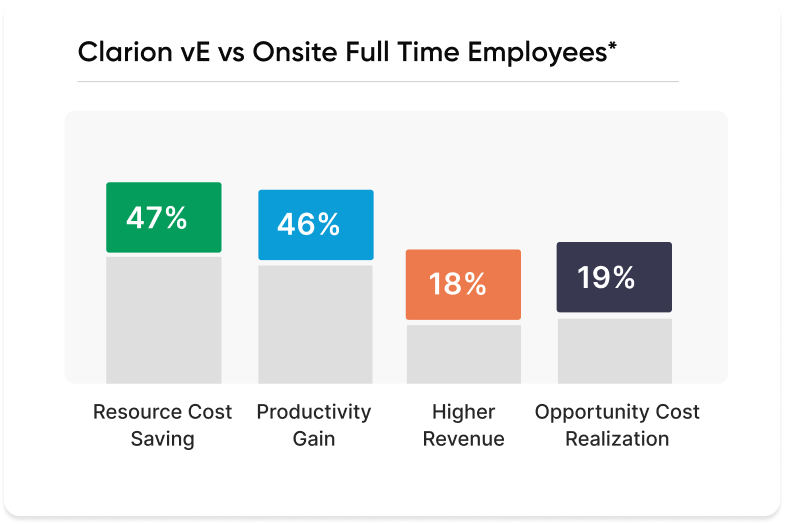Python web framework is used by top companies worldwide, such as Google, Apple, and Netflix, and holds up to 28% of market shares as one of the most popular programming languages. Its popularity has skyrocketed in the last five years, and it has the necessary functionality to build and expedite state-of-the-art custom web applications. The Python app development coding language is a logical starting point for many beginners due to its easy learning curve, simplicity, and intuitive syntax. It makes it easier to build specific kinds of applications, and there are many popular Python frameworks to choose from to get started.
Types of Python Frameworks
It is important to understand the different types of Python frameworks before being able to take advantage of the market’s offerings. Generally speaking, there are three kinds of Python web frameworks:
1. Microframework
Python microframework is lightweight and geared towards designing specific application development tasks. This type of Python web framework doesn’t include all extensive features, but it provides a minimalist foundation to get started. For those who are just starting to build basic web applications, it is highly recommended by a Python web development company.
2. Asynchronous Framework
An asynchronous framework is a relatively new entry into the Python world. Asynchronous Python frameworks design programs that can run various programming tasks parallelly with high concurrency. They are a prerequisite for building high-performance web applications.
3. Full-stack Framework
A full-stack Python web framework covers all Python web development needs and includes functionalities such as database and server creation, front-end development, complex application design, and much more.
Check out our blog on Python vs. DotNet to know which language suits your project the best.
Top 10 Best Python Frameworks for Web Development In 2024
Python lacks certain features that enable developers to build custom web applications. This is why the Python community has come up with an array of python frameworks to assist with the web development process. Popular Python frameworks fill in gaps and address nuances which cannot be taken care of by default.
1. Django
Released in 2005, Django is among the most popular python web frameworks used for web development and can quickly design applications and APIs. It has been used to create more than 12,000 projects and features a vast collection of libraries and reusable components. This Python web framework is used by the likes of Instagram and Spotify and offers other features such as ORM mapping and URL routing. In addition, it has built-in authentication systems, and multiple caching mechanisms, and is an object-oriented programming language with great data storage and recovery capabilities, providing many benefits to any Python web development company.
2. CherryPy
CherryPy offers a stable and minimalistic approach to Python web development and is completely open-source web development framework. It empowers developers with data access and templating features. CherryPy is one of the Python frameworks thatoffers various features like cookies and sessions, file uploads, and powerful configuration systems. It is WSGI compliant and has consistent HTTP servers that are run once, in addition to built-in coding tools and caching mechanisms. The top companies using CherryPy for Python web development projects are Juju and Hulu and the framework was released in 2002.
3. Flask
Flask is another widely recognized and top-tier Python framework. Flask comes with a BSD license and draws inspiration from the Sinatra Ruby framework. This Python web framework was released in 2010 and was popularized by companies such as Netflix and Lyft.
Flask offers extensive features such as integrated coding and unit testing support, Jinja2 templates, and Werkzeug WSGI toolkits, and comes with built-in development servers and debuggers. Flask is lightweight and includes added functionalities like restful request dispatching, Google App Engine compatibility, and the ability to plug into the ORM framework. It is easily scalable and can interact with other tools as well.
4. Hug
Launched in 2020, Hug is compiled with Cython and delivers amazing performance, being one of the fastest-performing Python frameworks in the industry. This Python web framework is designed to consume only as many resources as needed and features built-in version management. Users can document APIs, leverage type annotations, and write their code once and use it everywhere. Hug offers quick and easy deployments and Owlin is one of the top firms currently using it.
5. Bottle
Bottle was released in 2010 and quickly rose to fame by contributing to Total Recall VR’s business growth. Its core features are dynamic URL routes for mapping, quick built-in templates and backing, WSGI framework, and easy accessibility to HTTP-related metadata.
Bottle only uses a single standard code library and is distributed as a source file module. It does not require the use of an import statement and can be used to build various web applications with Python.
For developers looking for enhanced flexibility, Bottle has a small profile, is easy to deploy, and is more powerful than most Python frameworks.
6. Pyramid
Pyramid is a popular web development framework that runs on Python 3 and known for its minimalistic design. Its key features include the ability to run smoothly both large and small apps, HTML structure validation, comprehensive testing, support, and data documentation, and flexible authentication and approvals. Pyramid has function decorators, built-in sessions, and database integrations, and can write complex software projects with minimal effort. It offers a filterable list of add-ons, applications, and extensive API references that build upon its initial offerings. Pyramid was launched on July 8, 2008, and the top companies using this framework are AdRoll, DiscNW, BraveWords, and Hypothesis.
7. TurboGears
TurboGears is a web development framework designed for full-stack Python projects and it is also a standalone WSGI web framework. It was originally inspired by RubyOnRails and based on the MVC architecture, being one of the few frameworks that support MongoDB for storage backends. The top features provided by this framework are – request-bound transactions, schema migrations, caching and sessions, autogenerated admin and CRUD, interactive debugging, and pluggable applications. It also provides support for multiple template engines, including the XM template engine. Developers can avoid injection attacks XSS security issues and automated internationalization.
8. Web2Py
What’s popular about Web2Py is its creative web engineering capabilities. It is an open-source full-stack Python framework that comes with a web-based IDE and includes one-click deployment and a code editor debugger. The only downside of this framework is that it doesn’t support Python 3 but it is completely free and has many plenty of educational resources.
Web2Py automatically addresses security issues by default in Python projects and includes a Database Abstraction Layer (DAL) that can write SQL dynamically.
9. Cubic Web
Cubic Web is a semantic web framework built with reusability in mind and it is an excellent open-source choice for data-centric apps. It uses a standard SQL database for storage and PostgreSQL too for increased efficiency. Notable projects designed with this framework are data.bnf.fr, France Archives, DataPOC, and Napoleonica. Another key benefit of Cubic Web is the selection+view mechanism for automatic JSON/XML/XHTML and text generation and it can make explicit data models of applications.
Cubic Web provides repositories for database connections and has a built-in templating system. It provides tools for web UIs and the cubic web pyramid modules can use the Pyramid framework as a web server, helping to make async constructions. The framework has a lot of dependencies and can be used to build a variety of Python web applications. However, although it is active, it is a bit slow in development and its developers have not announced any stipulated timelines for updates.
10. Falcon
Falcon is a minimalist ASGI/WSGI framework that is used to design mission-critical REST APIs and Python microservices, with performance and reliability at scale as its primary focus. It is blazing fast, has a great code base size, is super clean, and is very simple to use.
It offers the following features:
- Snappy testing with ASGI/WSGI helpers and mocks
- Easily accessible headers, bodies, and request and response objects
- API modelling and centralized RESTful routing
- Stable interfaces and backwards compatibility
- Support for CPython 3.5+ and PyPy 3.5+
- Support for Websocket and Native asyncio
- Does not rely on magic globals for state management and routing
- RFCs adherence
Falcon is used by top companies like Opera Software, 7ideas, Cronitor, tempfiLes, Leadpages, EMC, Hurricane Electric, and OpenStack. It is considered to be very minimal, robust, and about 28 times faster than Django. Falcon is best used in combination with Pypy3 and makes it easy to maintain servers.

Wondering if Python is worth the investment? Know in seconds with our ROI Calculator
Conclusion:
Some Python frameworks like Web2py and Grok are easier to use than others due to simple configurations and their low-code approach. For beginners, Bottle is an excellent python framework to use and its entire source code can be found in a single file. Both Django and Flash are great for building custom web applications and are preferred by the industry. Many of these frameworks provide a rich set of modules and libraries that programmers can use to build a variety of applications.
You can also hire Python developers for your next project through us or opt for Python web development services. If you are rather experienced, you can try out BlueBream which is amazing for enhancing web security and has a tool that generates forms automatically. It relies on the Zoop Toolkit (ZTK) and enforces consistent and adaptable programming, offering high language compliance with XHTML for designing templates. We also recommend testing Python websites using a tool like BrowserStack to test across multiple browsers, operating systems, and devices to see which framework yields the best results for you and personalize user experiences.
Author








